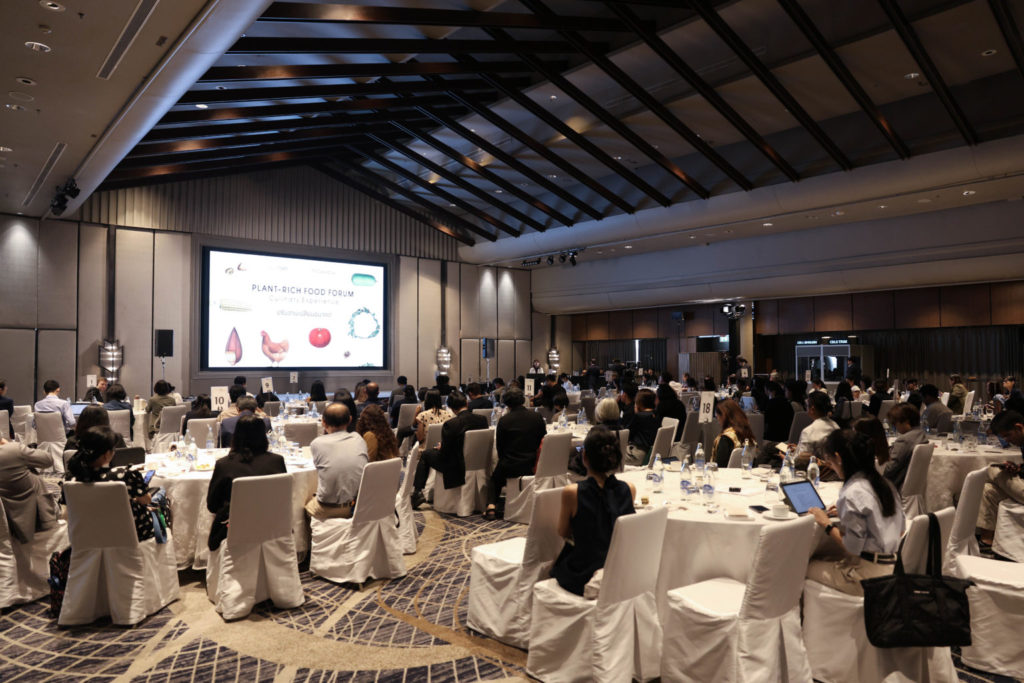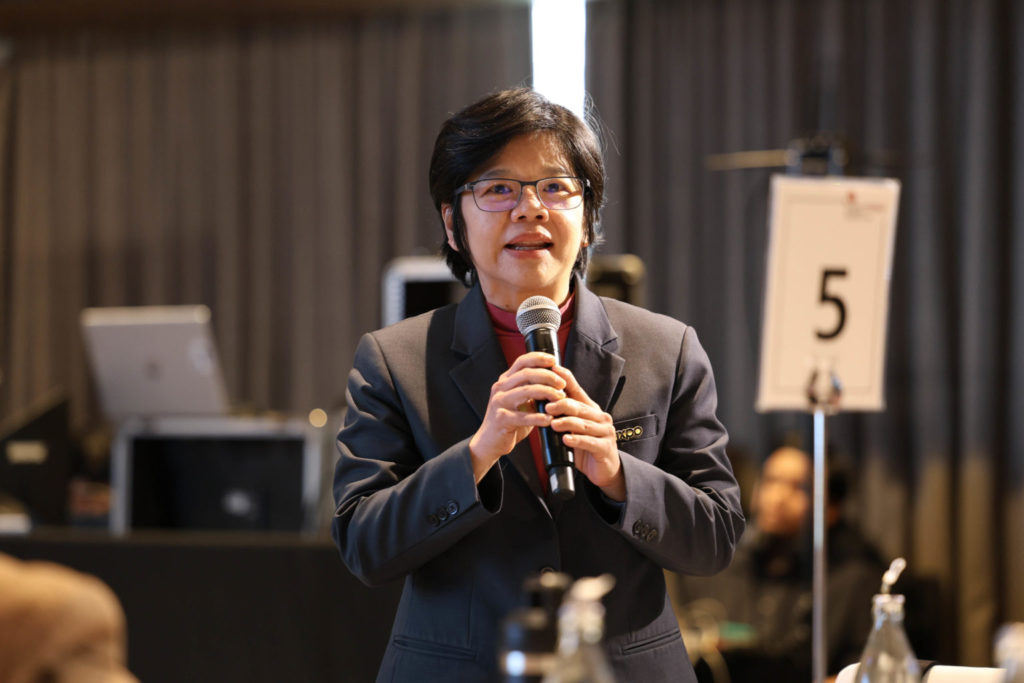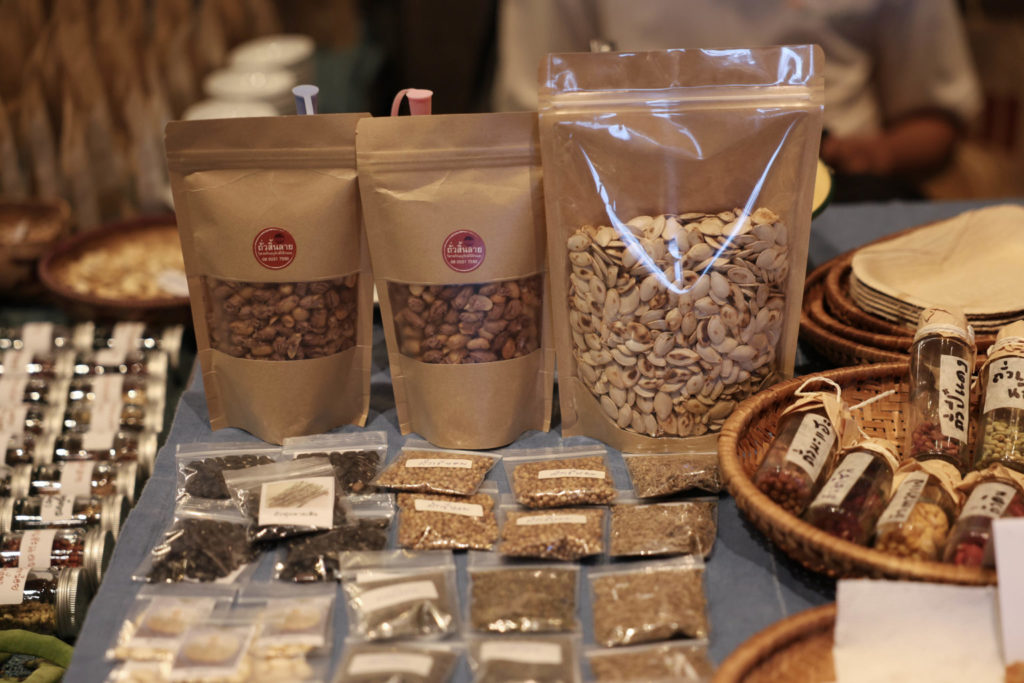On 24 July 2025, NXPO, in collaboration with Tilt Collective and The Cloud, hosted the “Plant-Rich Food Forum & Culinary Experience” at the Bangkok Marriott Marquis Queen’s Park. The event aimed to raise public awareness, provide stakeholders with insights into diverse protein sources, and reinforce Thailand’s position as a regional leader in advancing a healthier and more sustainable food system. Attendees included representatives from government agencies, policymakers, the private sector, media, international organizations, and civil society.

Ms. Sirinya Lim, Director of Bioeconomy Policy Division at NXPO, delivered a talk on “Plant-Rich Food Future: A National Strategy for Economic Innovation and Global Competitiveness.” She emphasized that plant-based food systems are key to unlocking economic, health, and environmental benefits. By adopting plant-based foods, Thailand can improve public health, lower the risk of non-communicable diseases (NCDs), and reduce healthcare costs over the next 25 years. This transition could also drive the development of a new economy powered by advanced technologies such as synthetic biology, AI, and 3D printing, while enhancing sustainability and food security through a broader range of protein sources.
Thailand has set climate goals of reducing greenhouse gas emissions by 40% by 2030 and achieving carbon neutrality by 2050. Shifting to plant-based proteins—targeting 50% of total protein consumption by 2050—could cut annual CO₂ emissions by 35.5 million tons. This would directly contribute to Thailand’s Paris Agreement commitments and its net-zero targets. The plant-based food market is projected to grow from 50 billion THB in 2023 to 68.8 billion THB by 2027, at an annual growth rate of 8%.

Ms. Sirinya also shared examples of proactive international policies. The UK’s national food strategy targets a 30% reduction in meat consumption while increasing fruit, vegetable, and fiber intake. France’s 2023 Climate and Resilience Bill requires public food service providers to offer daily plant-based options. Denmark’s Ministry of Food, Agriculture, and Fisheries has launched an Action Plan on Plant-Based Foods, and Taiwan’s Climate Change Response Act mandates government support for low-carbon diets, including plant-based options and food waste reduction.
Thailand has several advantages in this sector—abundant raw materials, rich biodiversity, and a globally recognized food production industry. As a home to the largest plant-based protein producer in Asia-Pacific and a key player in the global food market, Thailand is well positioned to become a global hub for sustainable protein. However, challenges remain, including taste preferences and concerns over ultra-processed foods (UPFs), which must be addressed through public education.

NXPO is advancing the plant-based protein sector through three core strategies: 1) building industry capacity, 2) advancing research and innovation, and 3) expanding markets. Its Plant-Rich Food System Transition Project (2025–2027) focuses on:
- Strengthening the buyer-supplier network in the plant-rich value chain by identifying barriers, facilitating business matchmaking, and developing a database to include at least 30 companies.
- Implementing supportive policy frameworks in collaboration with relevant government agencies.
- Cultivating change agents by training 15 key professionals—such as dietitians, chefs, educators, influencers, and wellness entrepreneurs—through a short-term program.
“Thailand holds great potential in plant-based food production. A plant-rich diet not only benefits personal health and the environment but also drives national economic growth,” said Ms. Sirinya.

Ms. Ratima Urthamapimuk, Senior Strategist at NXPO, also shared how the organization is leading by example. She highlighted NXPO’s environmental initiatives, including its participation in the Carbon Footprint for Organization (CFO), and the campaign to serve at least 30% plant-based meals at its official events and meetings. These efforts aim to establish NXPO as a model for sustainability organizations and contribute to the broader national movement.













